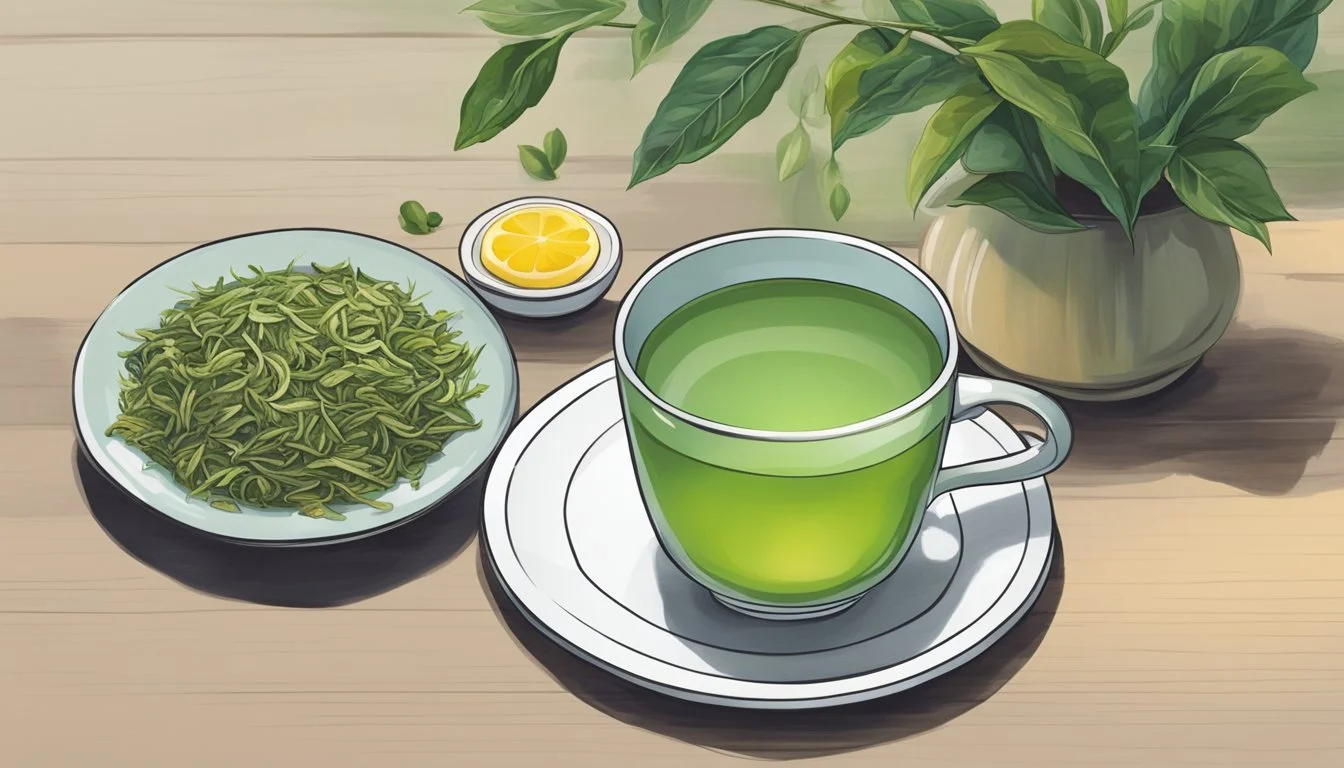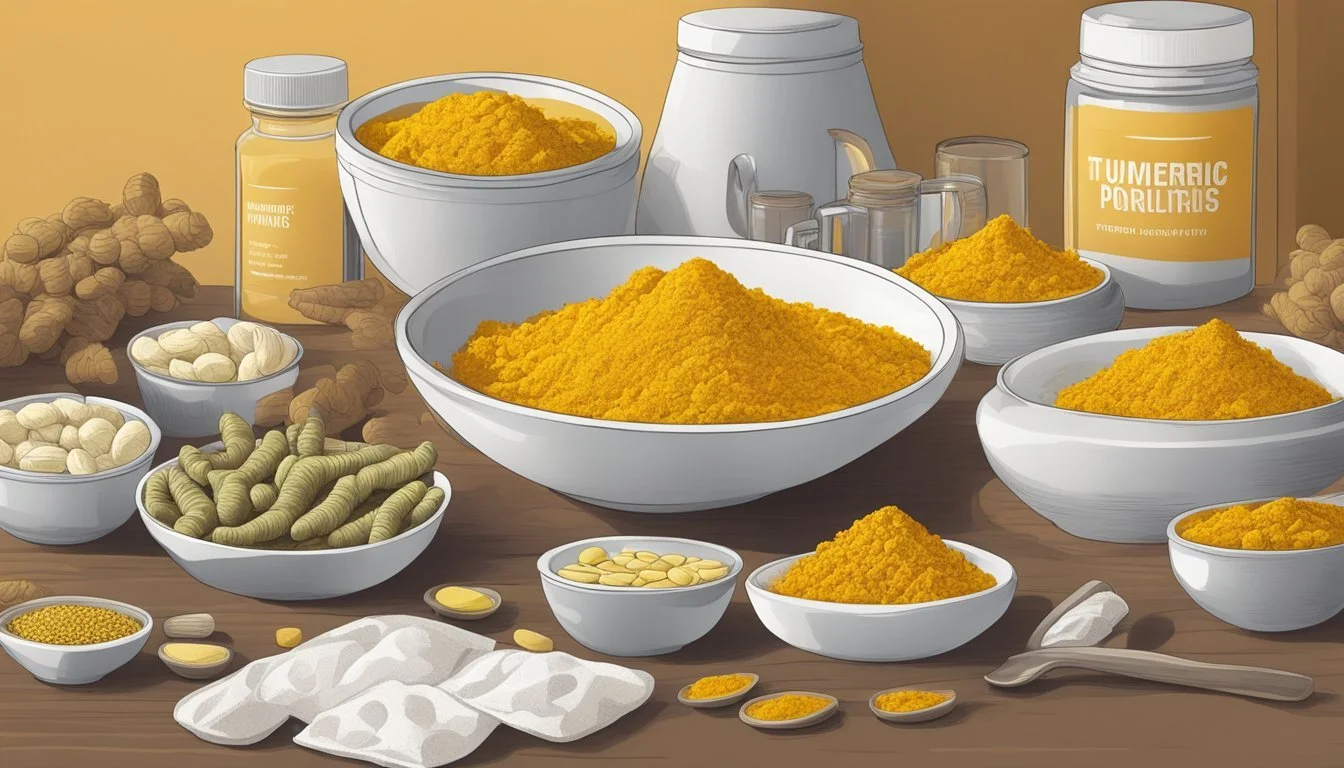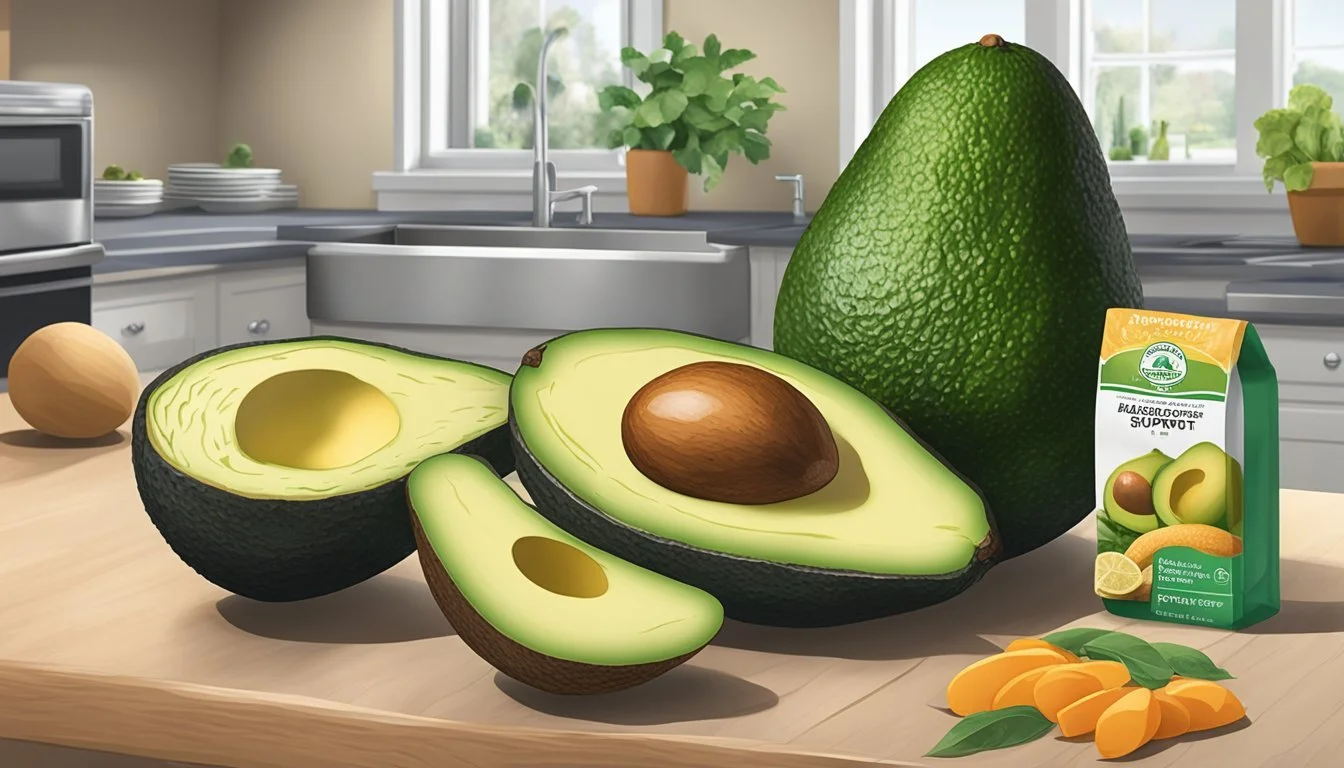Prostate-Friendly Foods to Manage Enlarged Prostate Symptoms
An enlarged prostate, also known as benign prostatic hyperplasia (BPH), is a common condition that affects many men as they age. This condition can lead to uncomfortable symptoms such as increased urinary frequency and urgency, which can significantly impact daily life. Fortunately, dietary choices play a crucial role in managing these symptoms.
Incorporating specific foods into one's diet may alleviate some of the discomfort associated with an enlarged prostate. Research has shown that certain nutrients and compounds found in everyday foods can support prostate health and reduce inflammation. This article explores which foods to include in your diet to help manage an enlarged prostate effectively.
1) Tomatoes
Tomatoes are a key component of a diet aimed at supporting prostate health. They are rich in lycopene, an antioxidant that has been studied for its potential benefits in reducing the risk of prostate issues, including benign prostatic hyperplasia (BPH).
Lycopene is more readily absorbed by the body when tomatoes are cooked. So, consuming tomato-based products like tomato sauce, soup, and paste can be particularly beneficial.
In addition to lycopene, tomatoes also contain vitamin C and other nutrients that contribute to overall health. These vitamins and minerals support the immune system and help reduce inflammation.
Incorporating tomatoes into daily meals can be as simple as adding them to salads, sauces, or smoothies. For optimal benefit, aim to include a variety of tomato-based dishes in your diet.
2) Broccoli
Broccoli is known to promote prostate health due to its rich nutrient profile. It belongs to the cruciferous vegetable family, which includes kale, cauliflower, and brussels sprouts. These vegetables are high in antioxidants, vitamins, and minerals.
Cruciferous vegetables, like broccoli, contain compounds called phytochemicals. These compounds help protect cells from damage by reducing oxidative stress. Broccoli is also rich in sulforaphane, a compound that has been studied for its potential protective effects against cancer.
Men with prostate issues benefit from including broccoli in their diet. Studies indicate that a diet high in fruits and vegetables, particularly broccoli, can help manage symptoms of an enlarged prostate. Broccoli’s anti-inflammatory properties can aid in reducing inflammation in prostate tissues.
Adding broccoli to meals is a step towards maintaining prostate health. The vegetable can be steamed, sautéed, or added to salads and soups. Regular consumption can be a part of a proactive diet plan focused on overall health and specific prostate benefits.
3) Green Tea
Green tea has been suggested as a beneficial drink for those with an enlarged prostate, or benign prostatic hyperplasia (BPH). This is due to its high content of antioxidants, particularly polyphenols, which may have anti-inflammatory properties.
Polyphenols in green tea are thought to help manage inflammation, a common issue in BPH. Drinking green tea may therefore help alleviate some symptoms associated with an enlarged prostate.
Choosing high-quality green tea is important for maximum benefit. Matcha, a form of green tea, is particularly rich in antioxidants.
To prepare matcha, mix two teaspoons of matcha powder with a small amount of hot water, then whisk until frothy. This can be consumed daily as part of a diet aimed at improving prostate health.
Green tea can be easily incorporated into daily routines. It can be enjoyed hot or cold, making it versatile across different seasons. Regular consumption may contribute to better prostate health.
4) Salmon
Salmon is known for its rich content of omega-3 fatty acids. These healthy fats are not only beneficial for heart health but also play a role in managing prostate health.
Research has indicated that omega-3 fatty acids may help slow the progression of prostate tumors. Including salmon in the diet could potentially reduce the risk of developing advanced prostate cancer.
Salmon also contains vitamin D, which has been linked to lower prostate cancer risk. For individuals with an enlarged prostate, adding salmon to their diet can be a tasty way to incorporate these essential nutrients.
Regular consumption of salmon provides anti-inflammatory benefits which are important for prostate health. This makes salmon a valuable addition to a diet aimed at managing an enlarged prostate.
Preparing salmon in various ways, such as grilling, baking, or even in salads, can make it easy to enjoy this nutritious fish multiple times a week.
5) Pomegranate Juice
Pomegranate juice offers several benefits for prostate health. Rich in antioxidants, pomegranate helps to combat oxidative stress, which can support overall prostate function. The antioxidants in pomegranate, such as punicalagins and anthocyanins, are known to reduce inflammation.
Studies have shown that drinking pomegranate juice can help stabilize PSA levels in men treated for prostate cancer. This means that it may slow the progression of the disease.
In addition, research indicates that pomegranate inhibits prostate cancer cell growth. This effect, in combination with a balanced diet, may significantly reduce the risk of prostate enlargement and cancer.
Including a daily serving of pomegranate juice in one's diet can thus contribute to maintaining a healthy prostate. As part of a varied and nutritious diet, pomegranate juice can be a valuable addition.
6) Turmeric
Turmeric, a bright yellow spice commonly used in cooking, has shown potential benefits for men with an enlarged prostate.
The active compound in turmeric, curcumin, possesses anti-inflammatory properties that may help reduce prostate inflammation. This reduction in inflammation can alleviate some of the symptoms associated with an enlarged prostate.
Additionally, curcumin has antioxidant properties. Antioxidants help combat oxidative stress, which can damage cells and contribute to the progression of prostate conditions.
Incorporating turmeric into the diet can be done through various means. It can be added to foods and beverages or taken as a supplement. Some evidence suggests that turmeric's potential benefits extend to other prostate-related issues.
Despite its potential advantages, it is essential to consult with a healthcare provider before starting any new supplement regimen. This ensures that turmeric use does not interfere with any ongoing treatments or medications.
7) Pumpkin Seeds
Pumpkin seeds can be beneficial for prostate health. They contain phytosterols, which are compounds that might help reduce prostate enlargement.
Consuming a small amount of pumpkin seeds a few times a week could potentially limit the symptoms of benign prostatic hyperplasia (BPH). These seeds can be easy to incorporate into the diet.
People can enjoy pumpkin seeds as a healthy snack or add them to salads and other dishes. Moreover, they are a good source of essential nutrients and healthy fats.
8) Soybeans
Soybeans are known for being rich in isoflavones. These compounds have been found to help manage symptoms associated with an enlarged prostate.
Among various soy-based products, soymilk stands out. Incorporating soymilk into daily diets can provide a regular source of isoflavones.
Other whole soy foods include tofu and edamame. These options offer versatile ways to include soy in meals.
Regular intake of soy products could contribute to prostate health. Studies suggest that isoflavones may alleviate lower urinary tract symptoms linked to benign prostatic hyperplasia (BPH).
Including soybeans in a balanced diet complements other lifestyle changes. This approach may support overall prostate health and symptom management for those dealing with BPH.
9) Avocados
Avocados are a nutrient-dense fruit that may offer benefits for individuals dealing with an enlarged prostate. They are rich in healthy fats, particularly monounsaturated fats, which can help reduce inflammation in the body.
Additionally, avocados contain beta-sitosterol, a plant sterol that has been linked to improved urinary flow and reduction in symptoms of benign prostatic hyperplasia (BPH).
They are also a good source of vitamins and minerals, such as vitamin E, potassium, and vitamin C, which contribute to overall prostate health. Including avocados in the diet can be as simple as adding them to salads, smoothies, or consuming them as a spread on whole-grain toast.
Incorporating avocados regularly might help manage and alleviate some BPH symptoms, providing a natural dietary option for supporting prostate health.
10) Bell Peppers
Bell peppers are known for their vibrant colors and crisp texture. They are rich in antioxidants, particularly vitamin C and beta-carotene. These nutrients are vital for overall health and may help reduce inflammation.
Inflammation plays a role in the symptoms associated with an enlarged prostate. Consuming foods like bell peppers may help mitigate these symptoms.
In addition to antioxidants, bell peppers are low in calories. This makes them an excellent choice for individuals looking to manage their weight. Maintaining a healthy weight is important in reducing the risk of prostate-related issues, including benign prostatic hyperplasia (BPH).
Adding bell peppers to your diet can be easy and versatile. They can be eaten raw, roasted, or incorporated into various dishes. This can provide both flavor and health benefits. Including them regularly can contribute to better prostate health.
Nutritional Factors Influencing Prostate Health
Maintaining prostate health can be significantly influenced by incorporating specific vitamins and minerals into one's diet. This section explores the critical roles of vitamins and minerals in supporting prostate function and mitigating symptoms of an enlarged prostate.
Role of Vitamins
Vitamins play a crucial role in supporting prostate health. Vitamin D is particularly important, as it may help reduce inflammation within the prostate. Studies show that adequate levels of Vitamin D can slow the progression of benign prostatic hyperplasia (BPH), a common condition in older men.
Vitamin E has antioxidant properties that protect prostate cells from damage. Foods rich in Vitamin E, such as nuts and seeds, can be beneficial. Moreover, Vitamin C is known for boosting the immune system and is found in various fruits and vegetables like oranges, strawberries, and bell peppers.
Including these vitamins in the diet can contribute to reducing symptoms and promoting overall prostate health.
Important Minerals
Certain minerals are essential for maintaining a healthy prostate. Zinc, for example, is crucial as it plays a role in maintaining normal prostate function and hormone levels. Foods such as oysters, pumpkin seeds, and nuts are rich sources of zinc.
Selenium is another mineral with significant benefits. It has been studied for its potential in reducing the risk of prostate cancer. Selenium can be found in foods like Brazil nuts, fish, and sunflower seeds.
Magnesium also supports prostate health by aiding in muscle relaxation and reducing inflammation. Incorporating these key minerals into the diet can help manage prostate health symptoms effectively.
Foods Rich in Omega-3 Fatty Acids
Foods rich in omega-3 fatty acids play a critical role in reducing inflammation and promoting prostate health. This section covers the primary sources of omega-3s and their specific benefits for an enlarged prostate.
Sources of Omega-3
Salmon: Salmon is a well-known source of omega-3 fatty acids. A single serving provides a substantial amount of these beneficial fats.
Sardines and Trout: Other cold-water fish like sardines and trout also offer high levels of omega-3s, making them excellent alternatives to salmon.
Plant-based Sources: For those who prefer plant-based options, ground flax seeds, walnuts, kidney beans, and canola oil are rich in omega-3s. These sources can be easily incorporated into various dishes.
Benefits for Prostate Health
Anti-Inflammatory Properties: Omega-3 fatty acids help reduce inflammation in the body. This can lower the risk of prostate issues and manage symptoms more effectively.
Nutrient Support: Omega-3s provide essential nutrients that support overall prostate health. Including these fats in the diet can improve cell function and reduce the risk of complications like benign prostatic hyperplasia (BPH).
Symptom Management: Regular intake of omega-3s may help manage symptoms such as urinary discomfort and frequent urination. By reducing inflammation, they contribute to better prostate function and general well-being.
Dietary Fiber and Prostate Health
Dietary fiber is crucial for maintaining overall health and may provide specific benefits for those with an enlarged prostate. Two main types of dietary fiber contribute uniquely to prostate health.
Types of Dietary Fiber
Dietary fiber comes in two primary forms: soluble and insoluble. Soluble fiber dissolves in water, forming a gel-like substance that can help lower blood cholesterol and glucose levels. Common sources include oats, barley, nuts, seeds, and beans.
Insoluble fiber, on the other hand, doesn’t dissolve in water and helps food move through the digestive system. This type of fiber can be found in whole grains, vegetables, and wheat bran. Both types of fiber are essential for a balanced diet.
Effects on Enlarged Prostate
Consuming dietary fiber may help mitigate some symptoms associated with an enlarged prostate, such as urinary urgency. Fiber aids in regulating bowel movements, reducing constipation—a condition that can exacerbate prostate symptoms.
A fiber-rich diet also aids in maintaining a healthy weight, which is significant since obesity can increase the risk of prostate issues. Additionally, fiber may help in reducing inflammation and supporting a healthy gut microbiome, both of which are beneficial for prostate health.
By focusing on incorporating more dietary fiber, individuals might experience better symptom management and overall health improvements related to an enlarged prostate.








